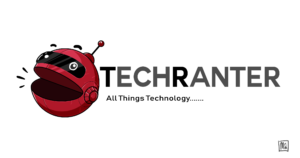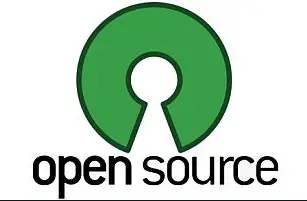When a project is an open source, anybody can use, study, change, and distribute it for any purpose, and an open-source license enforces this freedom.
Developing a successful open-source project requires careful planning, community engagement, effective management, and a focus on quality.
Do you wish to have an open-source project successfully? Then this is for you. In this article, you will see an extensive guide on how to develop a successful open-source project.
Read Also: How to test your mobile app before launching
1. Define Your Project
- Identify the purpose and goals of your project.
- Clearly define the problem you’re solving or the need you’re addressing.
- Determine the scope and features of your project.
-
2. Choose the Right License
- Select an open-source license that aligns with your project’s goals and ensures the community’s freedom to use, modify, and distribute your software.
- Commonly used licenses include MIT, Apache, and GNU General Public (GPL).
3. Establish a Strong Community
- Cultivate a welcoming and inclusive community by setting up communication channels (forums, mailing lists, chat platforms, etc.).
- Encourage collaboration and contribution from developers of diverse backgrounds and skill sets.
- Provide guidelines for code contributions and ensure a respectful and supportive environment.
4. Set Up Version Control and Repository
- Choose a version control system like Git or Mercurial to manage your project’s source code.
- Create a repository on a platform like GitHub, GitLab, or Bitbucket, which provides features like issue tracking, code review, and collaboration tools.
5. Develop a Roadmap and Documentation
- Create a roadmap that outlines the project’s major milestones and features.
- Document your project’s architecture, installation process, and usage instructions.
- Maintain clear and up-to-date documentation to help new contributors and users understand and participate in your project.
6. Write High-Quality Code
- Follow best practices for code organization, readability, and maintainability.
- Adopt coding standards and style guides to ensure consistency across the codebase.
- Regularly test and review your code to catch bugs and ensure stability.
7. Foster Contribution and Engagement
- Label issues as “good first issues” to encourage new contributors to get involved.
- Provide guidance and support to contributors, especially those new to open source.
- Review and merge pull requests promptly to maintain a sense of progress and inclusivity.
8. Release Regularly
- Publish regular releases to provide users with new features, bug fixes, and improvements.
- Use semantic versioning to explain the impact of each release.
- Make release notes available to highlight changes and improvements.
9. Market and Promote Your Project
- Create a website or landing page to showcase your project and its features.
- Leverage social media platforms, developer forums, and relevant communities to spread the word about your project.
- Engage with potential users and contributors by participating in discussions and conferences.
10. Handle Feedback and Issues
- Actively engage with users and address their feedback and feature requests.
- Respond promptly to bug reports and issues and provide transparent communication regarding bug fixes and resolutions.
- Maintain a productive feedback loop to improve your project continually.
-
11. Continuously Improve and Evolve
- Regularly evaluate and refine your project’s goals and roadmap.
- Embrace feedback, learn from your mistakes, and iterate on your project to improve it.
- Stay up-to-date with relevant technologies, libraries, and frameworks to ensure your project remains relevant and valuable.
-
12. Build a Sustainable Ecosystem
- Foster a healthy ecosystem around your project by encouraging the development of related tools, libraries, and plugins.
- Recognize and appreciate the contributions of your community members through acknowledgments, swag, or financial support.
- Consider creating a foundation or seeking funding to sustain and grow your project.
-
Remember, developing a successful open-source project is a continuous process that requires effort and dedication. Here are some additional points to consider:
13. Collaborate with Other Projects
- Identify similar or complementary open-source projects and explore opportunities for collaboration.
- Integration with other projects can enhance the functionality and value of your project, attracting more users and contributors.
Read Also: How to test your mobile app before launching
14. Support Multiple Platforms
- Ensure your project is compatible with multiple operating systems, platforms, and environments.
- Test your project on different configurations to provide a seamless experience for a broader range of users.
15. Create a Welcoming Onboarding Process
- Provide clear guidelines and resources for newcomers to understand how to contribute to your project.
- Offer mentorship programs or organize events to help new contributors get up to speed quickly.
16. Encourage Diverse Contributions
- Actively encourage contributions from individuals with diverse backgrounds, experiences, and perspectives.
- Promote inclusivity in your project by making it a safe space where everyone is respected and welcomed.
17. Engage with Your Community
- Organize meetups, webinars, or virtual conferences to bring contributors, users, and enthusiasts together.
- Regularly communicate project updates, milestones, and opportunities for involvement through newsletters or blog posts.
18. Monitor and Respond to Security Concerns
- Regularly review your project’s dependencies and address any known security vulnerabilities promptly.
- Establish a process for responsible disclosure and encourage the community to report security issues privately.
19. Provide Support and Documentation
- Offer user support through forums, chat channels, or dedicated mailing lists.
- Improve documentation by providing FAQs, troubleshooting guides, and a knowledge base to help users and contributors find answers to their questions.
20. Measure and Celebrate Success
- Define key metrics to track the progress and impact of your project.
- Celebrate milestones, acknowledge significant contributors, and highlight success stories in your community and relevant forums.
21. Evolve Governance and Decision-making
- As your project grows, consider establishing clear governance structures and decision-making processes.
- Encourage community involvement in decision-making through voting, working groups, or steering committees.
Read Also: The rise of low-code and no-code programming: what it means for developers
22. Be Responsive to Change
- Embrace change and adapt to evolving technologies, user needs, and market trends.
- Regularly assess and update your project’s strategy and direction to remain relevant and sustainable.
Remember, every open-source project is unique, and the path to success may vary. So adapt these guidelines to fit your project’s specific needs and goals, and be open to experimentation and learning.

